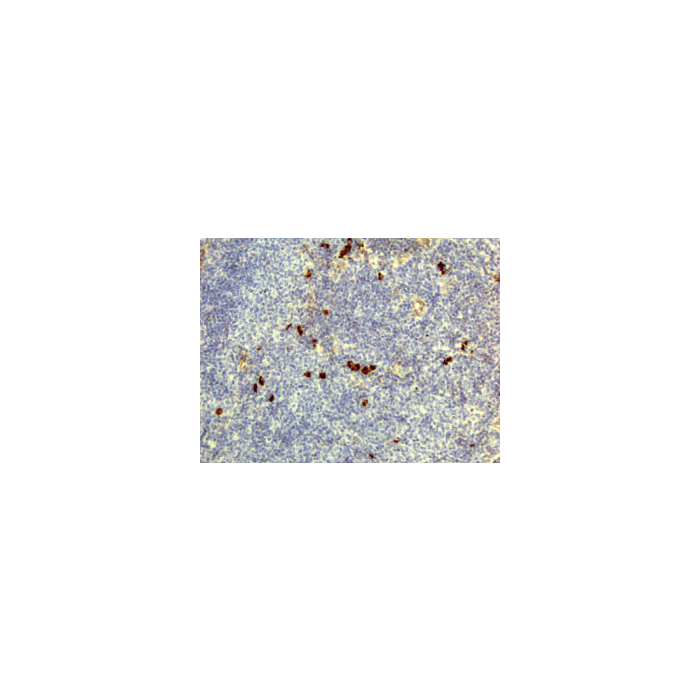Cookie Policy: This site uses cookies to improve your experience. You can find out more about our use of cookies in our Privacy Policy. By continuing to browse this site you agree to our use of cookies.
RevMab
anti-IgD (human), Rabbit Monoclonal (RM123)

| Product Details | |
|---|---|
| Synonyms | Immunoglobulin D |
| Product Type | Recombinant Antibody |
| Properties | |
| Clone | RM123 |
| Isotype | Rabbit IgG |
| Source/Host | Rabbit |
| Immunogen/Antigen | Human IgD. |
| Application |
ELISA: 25ng/well-200ng/well (for Capture) |
| Crossreactivity | Human |
| Specificity |
This antibody reacts to human IgD. No cross reactivity with human IgG, IgM, IgA, or IgE. |
| Purity | Protein A purified. |
| Purity Detail | Protein A affinity purified from an animal origin-free culture supernatant. |
| Concentration | 1 mg/ml |
| Formulation | Liquid. 50% Glycerol/PBS with 1% BSA and 0.09% sodium azide. |
| Isotype Negative Control | |
| Other Product Data |
Click here for Original Manufacturer Product Datasheet |
| Accession Number | P01880 |
| Declaration | Manufactured by RevMab Biosciences. |
| Shipping and Handling | |
| Shipping | BLUE ICE |
| Long Term Storage | -20°C |
| Handling Advice | Avoid freeze/thaw cycles. |
| Use/Stability | Stable for at least 1 year after receipt when stored at -20°C. |
| Documents | |
| Product Specification Sheet | |
| Datasheet |
 Download PDF Download PDF |
Immunoglobulin D (IgD) is an antibody isotype that makes up about 1% of proteins in the plasma membranes of immature B-lymphocytes where it is usually co-expressed with IgM. IgD is also produced in a secreted form that is found in very small amounts in blood serum, representing 0.25% of immunoglobulins in serum. Secreted IgD is produced as a monomeric antibody with two heavy chains of the delta (δ) class, and two Ig light chains. In B cells, the function of IgD is to signal the B cells to be activated. By being activated, B cells are ready to take part in the defense of the body as part of the immune system. IgD was found to bind to basophils and mast cells and activate these cells to produce antimicrobial factors to participate in respiratory immune defense in humans. It also stimulates basophils to release B cell homeostatic factors. This anti-human secondary antibody has well-characterized specificity for human IgD immunoglobulins and is useful in the detection, sorting or purification of its specified target. In general, secondary antibodies offer increased versatility enabling users to use many detection systems (e.g. HRP, AP, fluorescence). They can also provide greater sensitivity through signal amplification as multiple secondary antibodies can bind to a single primary antibody.





